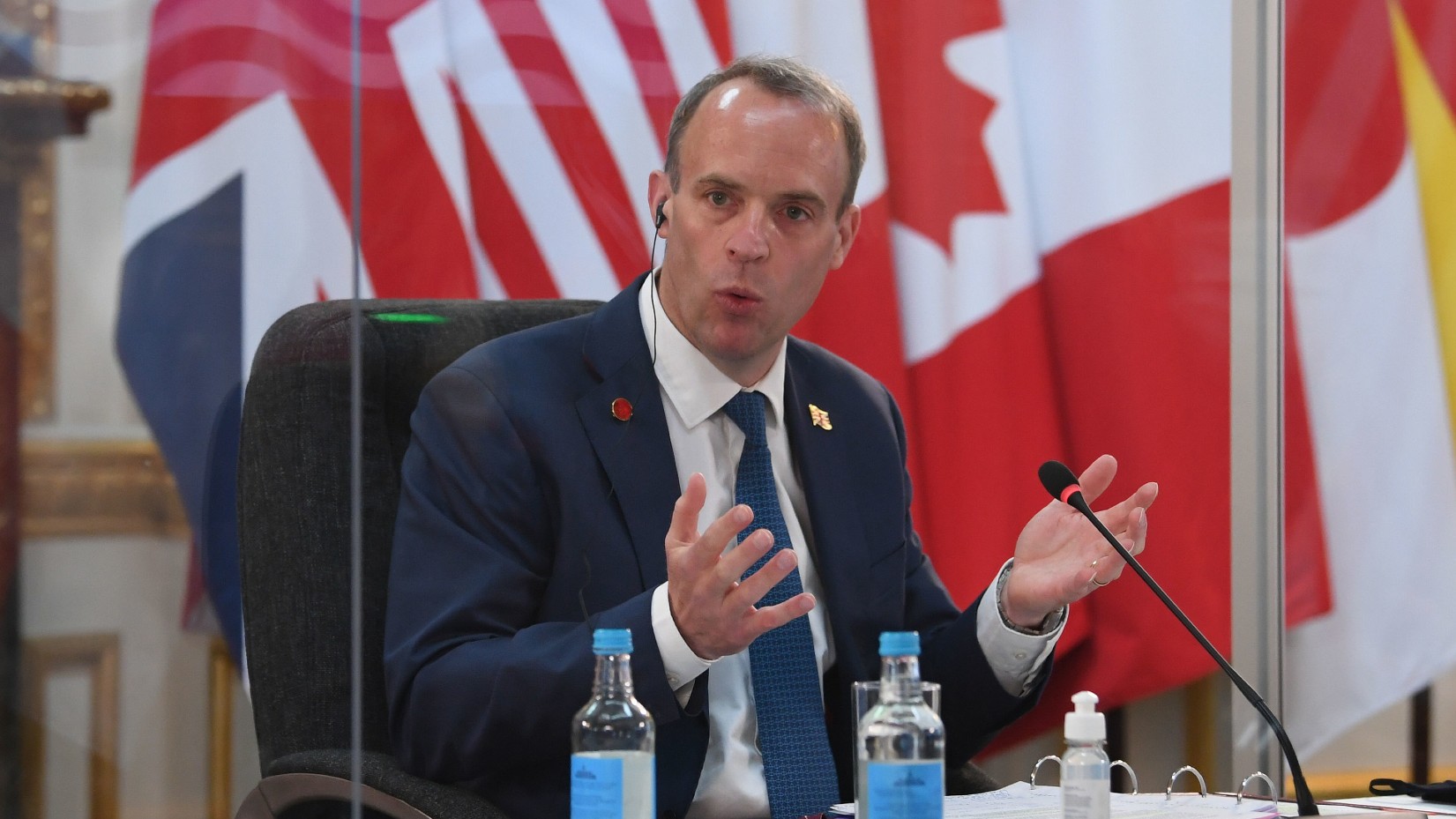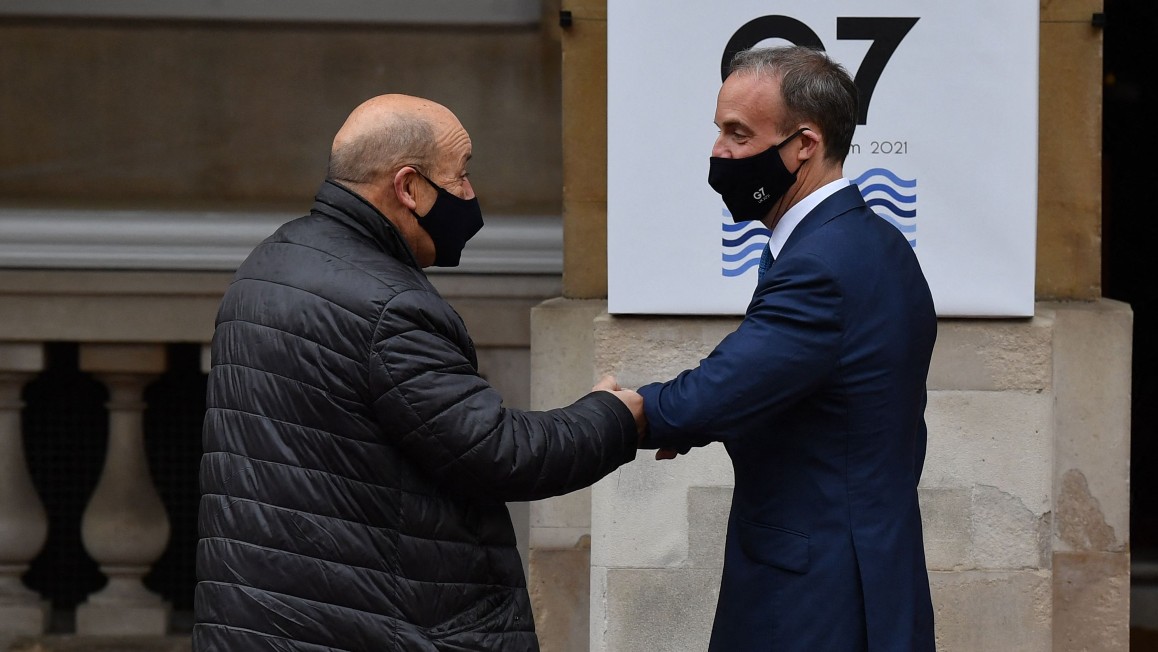Five ways the G7 summits will test ‘Global Britain’ plans
Foreign leaders meeting face to face in London today for first time in two years

A free daily email with the biggest news stories of the day – and the best features from TheWeek.com
You are now subscribed
Your newsletter sign-up was successful
Foreign ministers from the G7 countries are meeting in the English capital today to discuss rising threats from across the world.
The talks at London’s Lancaster House are being led by Dominic Raab and come a month before Boris Johnson hosts a meeting in Cornwall with the other leaders of the world's seven largest so-called advanced economies: Canada, France, Germany, Italy, Japan and the US.
The UK currently holds the rotating presidency of the G7 and is aiming to carve out a new place in the world as “Global Britain” - so the meetings are “a big test to see if its global foreign policy can live up to its name”, says the BBC’s James Landale.
The Week
Escape your echo chamber. Get the facts behind the news, plus analysis from multiple perspectives.

Sign up for The Week's Free Newsletters
From our morning news briefing to a weekly Good News Newsletter, get the best of The Week delivered directly to your inbox.
From our morning news briefing to a weekly Good News Newsletter, get the best of The Week delivered directly to your inbox.
Here are five crunch issues on the agenda today in London.
Russia left the group once known as G8 in 2017 after Moscow’s membership was suspended over its annexation of Crimea. Since then, the superpower has been a regular topic of debate among the remaining countries in the forum. Downing Street’s long-awaited Global Britain in a Competitive Age white paper, published in March, described Russia as “the most acute threat to our security” in the Euro-Atlantic region.
Underlining that message following a meeting with US Secretary of State Antony Blinken yesterday, Raab said that “like-minded countries” were uniting against authoritarian states and that the UK was “getting the G7 to come together with a rapid rebuttal mechanism” to counter Russian misinformation.
A free daily email with the biggest news stories of the day – and the best features from TheWeek.com
The foreign secretary also warned Russian President Vladimir Putin to end his “brinkmanship sabre-rattling on the border of Ukraine, the cyberattacks and misinformation and the poisoning of Alexei Navalny, that was not just a human rights abuse but a use of chemical weapons on Russian soil”.
China
Beijing is expected to be another key talking point, although as The Guardian notes, Western countries are “struggling to find the balance between confronting China and wanting China to open up its booming markets”.
The UK government’s Global Britain white paper promised an expansion of influence in the Indo-Pacific region as part of efforts to compete with the growing threat posed by China. Australia, India, South Korea and South Africa have also been invited to this week’s G7 summit, as the UK tries to “deepen ties” with the region, says the BBC.
Global response to Covid
Former UK prime minister Gordon Brown yesterday urged the G7 economies to use their wealth to fund a global Covid vaccination push. Speaking at a briefing by the World Health Organization (WHO), he warned: “By our failure to extend vaccination more rapidly to every country, we are choosing who lives and who dies.”
Raab has promised that the G7 will “be taking action to ensure fair access to vaccines around the world”. Meanwhile, Johnson is due to hold a virtual meeting with Narendra Modi, the PM of India, where coronavirus cases have soared past 20 million. Johnson has announced new trade deals with the country worth £1bn, including investments in its biotechnology and pharmaceuticals industry.

Climate finance
In his forward for March’s Global Britain review, Johnson said the government “would make tackling climate change and biodiversity loss its number one international priority”.
London-based think-tank Chatham House notes that the UK’s position as both G7 host and COP26 host later in the year provides a “unique opportunity to create synergies between the forums” and “increase the chances of an ambitious outcome at the COP in Glasgow”.
Targets for climate finance will “top the agenda” at today’s talks in London, which are “the first attended in person by G7 foreign ministers for two years”, reports Reuters.
Famine and education
Raab has said that “setting global girls’ education targets” and “developing new measures to prevent famine” will also be high on the G7’s list of talking points this week. This prioritisation is in keeping with the government’s pledge in the Global Britain review to be “a force for good in the world”.
However, critics have accused Westminster of already rescinding the promise by cutting the foreign aid budget from 0.7% to 0.5% in order to help cover the financial impact of the pandemic.
The Guardian says ministers will use the G7 summit to “collectively agree to help women in developing countries with a $15bn (£10.8bn) two-year package of support”. However, as the paper also notes, UK aid spending on girls’ education has been set at £400m for 2021 - £272m less than the average annual spend since 2016.